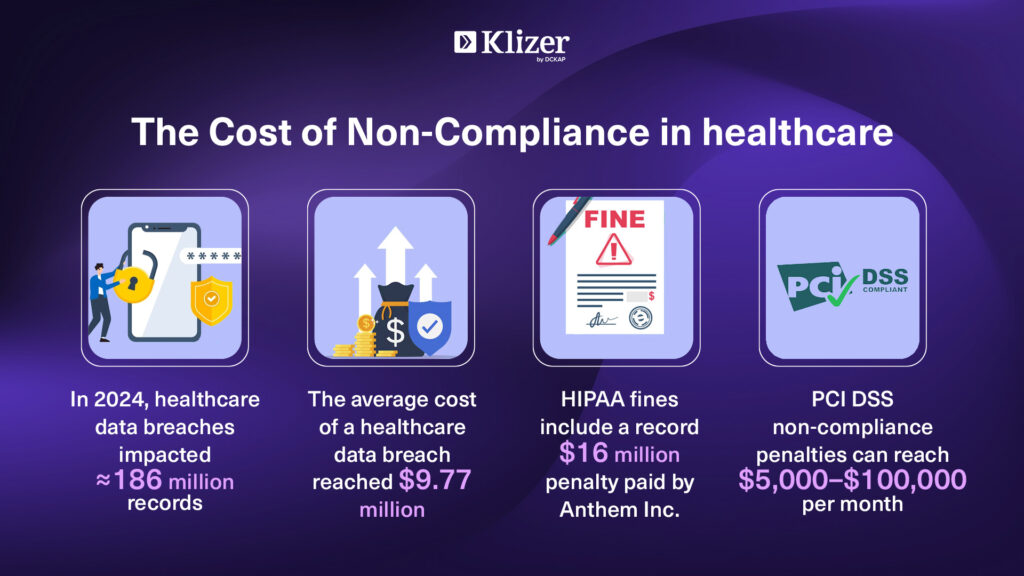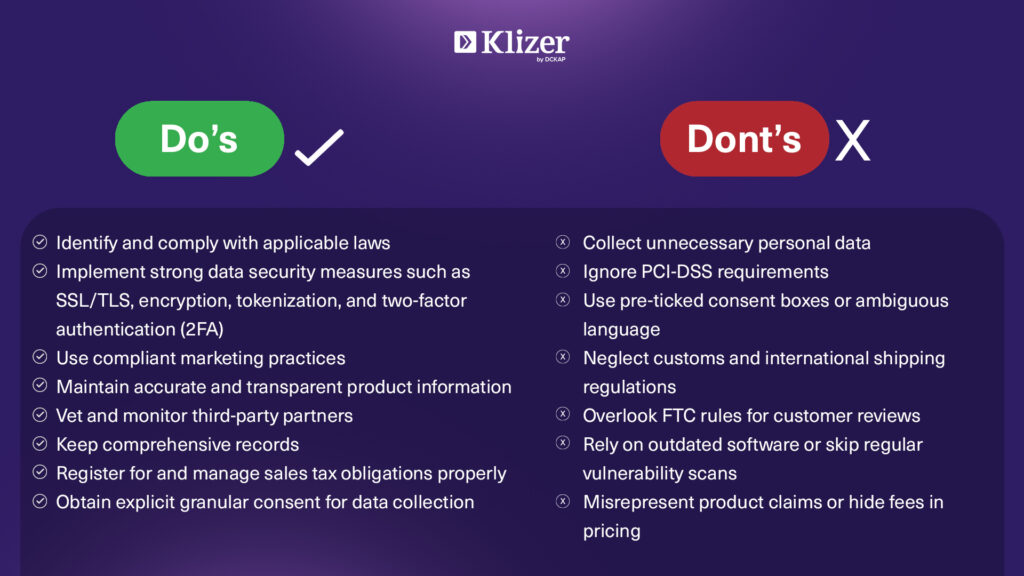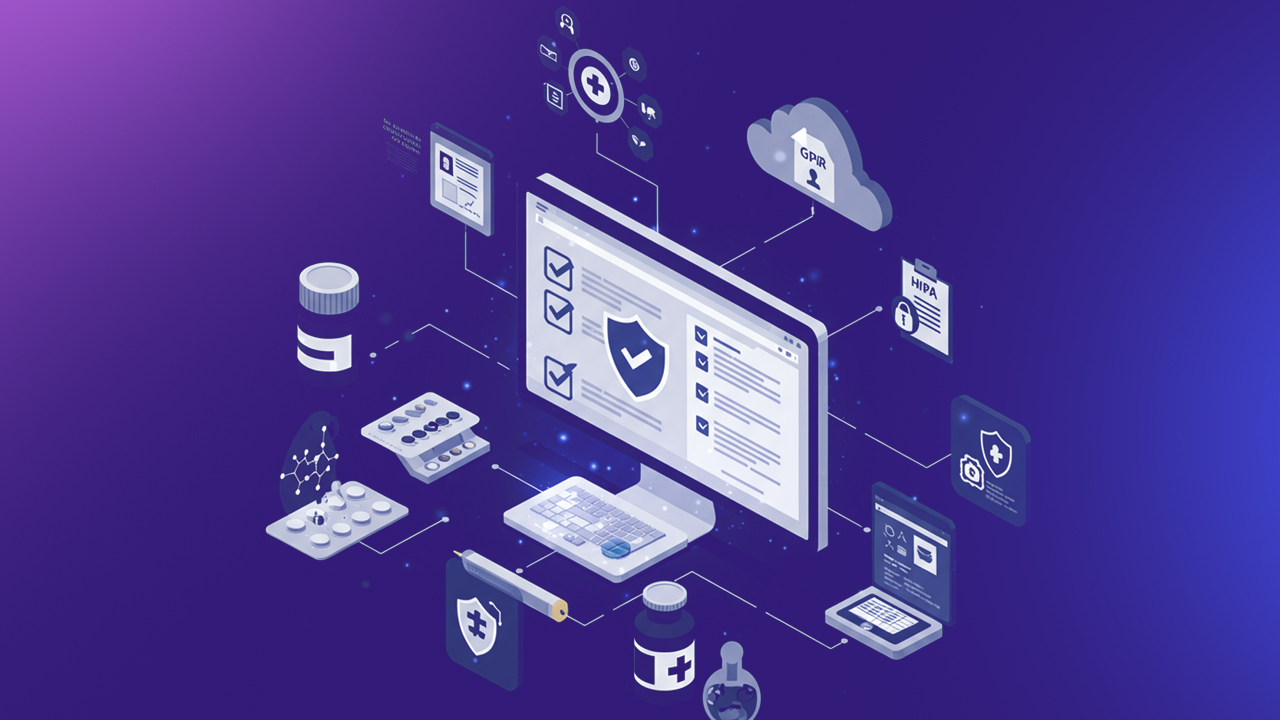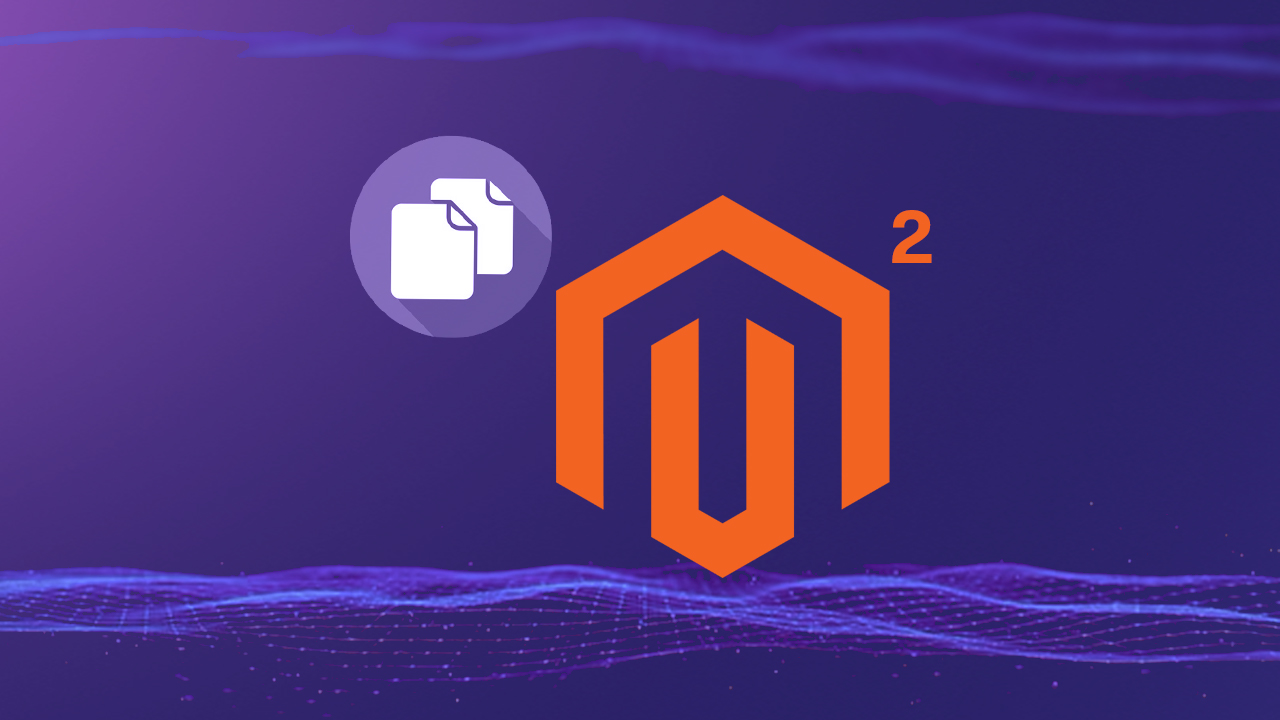Healthcare compliance is not like what it is for other industries. Because the risks are higher, the rules are even more strict and error marginality is zero. This is mostly because the medicines, devices and cricitial supplies are directly related to patient’s health and safety.
Healthcare suppliers are at the center of this challenge. They have to handle sensitive data, run complex supply chains, and meet multiple layers of regulations, all while keeping up with the changing needs of digital commerce. Relying on spreadsheets, manual processes, or outdated systems makes this nearly impossible.
That’s where modern healthcare ecommerce platforms step in. For healthcare suppliers, they’ve become compliance enablers, helping keep operations secure, transparent, and audit-ready.
In this blog, we’ll cover why compliance is such a critical issue, how eCommerce platforms help, and the best practices suppliers should follow to stay compliant.

ON THIS PAGE
Why compliance is extremely important in healthcare ecommerce
Compliance is the most critical requirements for having a successful healthcare commerce business. However, there are multiple factors that make compliance a must for this industry. Let’s go through them:
- Data breaches are increasing: Security threats are at all time high and healthcare data is the most targeted one. In 2024 alone, more than 180 million patient records were breached, and the average cost of a single breach hit $10.93 million, more than double the global industry average.
- Regulations are strict and layered: Healthcare suppliers deal with multiple regulations. They are expected to meet HIPAA for patient data, GDPR for EU citizens’ data, PCI DSS for payments, FDA rules for devices and drugs, and DSCSA (or supply chain traceability. If they miss even one of them, they are doomed.
- Penalties are costly: The U.S. Office for Civil Rights (OCR) has already issued over $143 million in HIPAA fines, with individual penalties going as high as $16 million (Anthem case). And that’s just HIPAA. PCI DSS non-compliance can mean fines between $5,000 to $100,000 per month.
- Trust is at the center: Healthcare is built on trust. A single compliance slip can destroy years of reputation. Unlike retail, where customers may forgive, patients and providers cannot afford to becuase it affects their lives and their loved ones’.
How healthcare ecommerce platforms ensure compliance
Modern healthcare ecommerce platforms are designed with compliance in mind. You can even ensure that it’s built to support your specific needs by investing custom ecommerce solutions for healthcare industry.
Here’s how they help healthcare suppliers:
1. Data security & privacy
Healthcare suppliers often process Protected Health Information (PHI), insurance details, and payment data. eCommerce platforms safeguard this with:
- Encryption for data in transit and at rest
- HIPAA-ready frameworks with secure data hosting
- PCI DSS–compliant payment gateways
- Audit logs for every action taken on the system
This reduces the risk of exposure and ensures sensitive data stays protected.
2. Automated compliance workflows
Manual compliance processes are slow and prone to error. Platforms automate tasks like:
- Audit trails: Automatically log orders, updates, and user actions
- Consent management: Collect and store digital consent for data usage
- Restricted product rules: Block non-prescription users from ordering regulated items
Automation means fewer mistakes and complete readiness for audits.
3. Role-based access control
Suppliers interact with multiple stakeholders, patients, distributors, clinicians, and sales teams. Not all of them should have the same access. Platforms make it easy to assign permissions:
- Patients only see their own history
- Sales reps see accounts assigned to them
- Admins oversee everything but can limit sensitive exposure
This supports HIPAA’s “minimum necessary” rule, which requires limiting access strictly to what’s needed.
4. Supply chain traceability
Counterfeit or compromised medical products can be dangerous. Platforms integrate track-and-trace features to:
- Verify product authenticity before delivery
- Monitor storage conditions for temperature-sensitive products
- Record end-to-end visibility from manufacturer to patient
This directly helps suppliers comply with the FDA’s DSCSA requirements and reduces the risk of recalls.
5. Compliance reporting & dashboards
Audits are stressful if you’re unprepared. eCommerce platforms simplify reporting with:
- On-demand compliance dashboards (HIPAA, GDPR, PCI DSS)
- Downloadable audit reports for regulators
- Automated alerts for violations or security gaps
Instead of going through a lot of documents, suppliers can hand over everything instantly.
6. Scalable security for growth
As suppliers expand, compliance risk grows too. eCommerce platforms scale security automatically:
- Handle peak orders (holiday seasons, emergencies) without gaps
- Keep consistent controls across regions
- Support multilingual and multi-currency compliance needs
Read More: Explore what compliance and challenges look like in healthcare commerce payments in our ebook: Navigating Payment Challenges with eCommerce Solutions for the Healthcare Industry
Best practices for ensuring compliance in healthcare ecommerce
If you’re a healthcare supplier, here’s a practical checklist to stay compliant:
- Choose a platform that supports HIPAA, GDPR, PCI DSS, and DSCSA compliance
- Enable role-based access for patients, sales teams, admins, and partners
- Automate audit trails and consent management for clean records
- Use track-and-trace systems for product authenticity and cold chain monitoring
- Run regular security audits: penetration testing, patching, vulnerability scans
- Keep dashboards and compliance reports updated at all times
- Train staff regularly on data handling, privacy policies, and security protocols
- Monitor compliance alerts in real time and respond instantly to violations
- Integrate eCommerce with ERP/CRM for consistent and centralized compliance
- Review compliance workflows quarterly to align with new regulations
Following these best practices not only reduces risks but also makes compliance a strength you can showcase to partners and customers.

Conclusion
Healthcare compliance is strict for a reason, because the stakes are life and death. For suppliers, the challenge isn’t just to meet the rules, but to stay consistent and secure while growing.
Modern eCommerce platforms help bridge this gap. They handle sensitive data securely, automate regulatory workflows, keep track of supply chains, and make reporting effortless. More importantly, they help suppliers turn compliance into an advantage, building trust, ensuring safety, and creating growth opportunities.
If you’re a healthcare supplier, the right eCommerce platform doesn’t just help you sell. It helps you stay compliant, protected, and future-ready.
And if you ever need help making sure your healthcare ecommerce solution works the way it’s supposed to, contact us and find all the answers you need.







